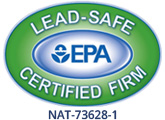How Moisture & Humidity Affect HVAC Systems
 When it’s hot and humid, you turn on the A/C in your home. In most cases, doing so dries out the air and reduces the temperature yet sometimes, you don’t notice a change.
When it’s hot and humid, you turn on the A/C in your home. In most cases, doing so dries out the air and reduces the temperature yet sometimes, you don’t notice a change.
If the air remains stuffy and warm, there could be a problem with the air conditioner. Within its basic setup, a compressor cools the air temperature and shuts off once the desired point is reached. As the coils in the system warm up, condensation may gather on the surface.
Eventually, enough accumulation drips down into a collection pan and gets drained away. Some of this moisture evaporates into the air, essential for keeping the air cool if you live in a drier climate. On the other hand, its presence ensures your home always has some degree of humidity in a warmer climate. How does moisture affect your HVAC system?
Too Much Moisture In the Air
If you turn on the A/C and the air does not feel cool, your home likely has too much moisture in the air. Along with little to no change in temperature, your home may smell or feel damp, have a musty scent or you notice fog on the windows.
At the same time, moisture combined with a musty scent indicate your home is dealing with a possible mold problem; a professional can identify the source. Generally, the excess humidity and “sweating” eventually manifest as a mold problem, often hidden inside a closet, in your HVAC ducts, basement or behind furniture.
If you previously installed a humidifier to address dry air, keeping it on through spring and summer might be overkill: The ideal minimum relative humidity should be around 25 percent. On the other hand, the humidifier you installed to manage dryness through winter might be leaking.
Keep in mind, the A/C and humidifier might not fully be to blame. A leaky home offers a clear pathway for water vapor to permeate during the summer months.
Although the windows, doors, crawlspaces and attic are common culprits, duct leakage or the house envelope may also be inviting moisture inside. Also, oversized cooling equipment that’s not proportional to your home’s size may compound the problem.
Poor Ventilation Contributes to Humidity
Your HVAC system might be responsible for the moisture, especially if your home has a sealed combustion furnace or power-vented water heater. These devices expel less air into the chimney and over time, produce condensation that allows excess humidity to develop and may lead to a mold problem. In winter or colder climates, the outside air causes condensation to develop on the intake pipe, where it then drips down on to the floor.
However, these furnaces and water heaters rarely work alone. As one strategy for keeping warm air in, you may have had all possible crevices and cracks sealed to prevent cold air from entering your home. In a tighter home like this, the moisture from the combustion furnace ends up getting trapped and causes the humidity to build up inside. This effect will be felt all year long. As a way to address this, mechanical ventilation offers a more reliable way to control indoor humidity.
Poor Maintenance
Forgetting to change your filters is often the cause of many HVAC issues. Ignoring your A/C unit as a whole can further contribute to moisture buildup:
- Air conditioners frequently experience condensation drain pan overflow when the system isn’t maintained.
- Your system has the wrong pan, including a poorly sized or sloped pan or does not have an emergency backup drain pan.
- Refrigerant lines are missing insulation, which may have been chewed away by pests.
- Poor maintenance may lead to insufficient airflow, which then causes more moisture to accumulate.
- Instead of addressing the A/C’s performance directly, you keep the temperature unnaturally low. In warm climates, this causes condensation to build up on ducts and registers.
- If you have an outdoor unit, you’ve allowed dirt and debris to accumulate on the coils and fins, which affects air circulation and causes condensation to develop.
If your air conditioner isn’t doing its job, have MJ Fahy & Sons inspect your home’s HVAC system to improve its performance now and keep it optimally running through summer. To learn more, contact us today.




